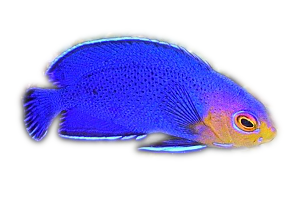
By Bob Goemans

Likely Reef Tank Suitable
Likely Fish-Only Tank Suitable
Range: Indo-West Pacific Ocean: Red Sea, Eastern Africa, Christmas Islands, Coco-Keeling Islands, Indonesia, Southern Japan, East China Sea, Marshall Islands, New Caledonia, and Australia.
Natural Environment: Inhabits shallow, usually turbid reef environments and often see at depths between 6 to 85 feet (2 - 25 m).
General Husbandry: Rarely seen in the trade.
Even though fully capable of producing all its nutritional needs via photosynthesis, plankton-like foodstuffs fed occasionally may be beneficial/promote quicker growth.
Some forethought needs to be given to newly received specimens as to their initial lighting requirements. Begin by placing the specimen where it will receive moderate light, e.g., 250 - 300 PAR. Move to slightly higher PAR levels only after becoming fully acclimated to initial surrounding conditions.
Taxonomy:
Kingdom: Animalia
Phylum: Cnidaria
Class: Anthozoa
Subclass: Hexacorallia
Order: Scleractinia
Family: Acroporidae
Genus: Anacropora
FYI: In the wild, a thin branching fragile coral, usually tan with cream branch tips.
Experience Level: Intermediate
Diet: Photosynthetic/Plankton feeder
Temperament: Peaceful
Aquarium Environment: Reef or fish-only aquarium
Coral Safe: With caution
Fish Safe: Yes
Invertebrate Safe: Yes
Acclimation Time: 30 minutes+
Aquarium Hardiness: Moderately difficult
Calcium (Ca): 380 - 430 mg/l
Alkalinity: 2.5 - 3.0 meq/l
Phosphate (PO4): <0.05 mg/l
Magnesium (Mg): approx. 1350 mg/l (relate to specific gravity)
Strontium (Sr) 8 - 10 mg/l
Temperature Range: 74 - 83°F (23 - 28°C)
Minimum Tank Size: 100 gallons
Lighting: PAR 250 - 400+
Water Movement: WM 2
Specific Gravity: 1.023 - 1.025
pH: 8.0 - 8.4
Iodine/Trace Elements Monitor/as necessary to maintain quality seawater.
